22, April 2020
Ambazonia Interim Gov’t reacts after publication of French Cameroun’s Ngarbuh Massacre Report 0
Sixty eight days ago, we woke up to a familiar dose of state sponsored barbarism by the French Cameroun regime in the village of Ngarbuh in Dunga Mantung County. According to the United Nations and Human Rights Watch, twenty three local residents, amongst them fourteen children, eleven girls and nine under the age of five were executed in cold blood. In this massacre, a pregnant woman was executed and another lost her baby at a local hospital. After their brutal and unprovoked killings, French Cameroun military personnel set ablaze nine homes in the village to cover their dreadful crimes. The atrocities of the 14th of February 2020 will never be deleted from our consciousness as a nation.
I come to you today in profound disappointment following the report released yesterday by the regime in Yaoundé into the massacre.As a government, our initial investigation after the attack pointed to French Cameroun’s military. Our judgment was accurate and now we must bring the atrocities of this neo-colonial regime to the consciousness of the world.We must remind ourselves that the regime in Yaoundé initially rejected any role in the massacre. But French Cameroun’s self-confession that ‘17 members of a local vigilante committee’ were working with their soldiers in this atrocity confirms our previous accounts that they have been sponsoring militant groups to terrorise and kill civilians in Southern Cameroons.
The neo-colonial regime in Yaoundé claimed immediately after the massacre that it was an accident after fuel supplies exploded into flames during a gun battle with separatists. They have now contradicted their own version of events. The inclusion of a so-call vigilante committee is a farce and deplorable. For over two years now, we have flawless evidence that the regime in Yaoundé is actively involved in stirring up intercommunity violence in Ambazonia.
The French Cameroun regime has never had an association with truth and honesty and so it claimed that ‘panic-stricken, the three servicemen with the help of some members of the vigilante committee, tried to conceal the facts by causing fires’. Even by their unashamed standards, this statement is an assault on the truthbecause all eyewitnesses confirmed that this was an unprovoked attack on a village in Southern Cameroons.
In March 2018, Mami Sarah Appih, 96 years old was burned alive in her bed in Kwa Kwa village by French Cameroun forces. In May 2018, the Guardian Newspaper in the UK carried an article after painstaking investigation on the burning of villages by French Cameroon forces. In May 2019, French Cameroun forces invaded a peaceful community in Muyuka, Southern Zone and summarily executed scores of people including five months old baby Martha. The burning of villages by forces loyal to Paul Biya’s regime has been plentiful and documented. None of the above atrocities have been investigated.
Yesterday’s statement endorses our reservations that this regime can’t be trusted to investigate its atrocities. On the 18th of February 2020 in Geneva, the spokesperson for the UN High Commissioner for Human Rights stated‘We call on the Government to ensure that the security forces abide by applicable international law norms standards during the conduct of their operations’. Yesterday’s report identified that the United Nations was invited to attend but it offered technical support instead. As a people, Southern Cameroonians regret the non-attendance of the United Nations in this investigation.
Since the declaration of war by French Cameroun on the peaceful people of Southern Cameroons, army loyal to the regime in Yaoundé have burned down over three hundred and twenty villages. The village of Ngarbuh in Dunga Mantung County is one of their hundreds of crime scenes. We condemn these acts of genocide strongly. These attacks are now premeditated, predominant, well-planned and they show a flagrant disregard for life by these soldiers. It is particularly disturbing that on paper, French Cameroun is a signatory to many international conventions on human rights but in Southern Cameroons, their military is pursuing and executing acts of genocide with impunity.
After yesterday’s report, the evidence is now overwhelming that this regime and its forces aren’t trustworthy. Yesterday’s statement admits reluctant guilt on the part of French Cameroun’s forces.
We are today calling on the international community through the United Nations to pass an immediate resolution necessitating an Independent Fact Finding Mission to start work in the Southern Cameroons. It’s our paramount belief that only such a mission will establish the facts in Ngarbuh and other scenes of genocides in Southern Cameroons.
We hope that the international community accepts this statement as a genuine attempt from the people of Southern Cameroons (Ambazonia) to bring this war to a close and the perpetrators of these crimes to real justice.
Sincerely,
DabneyYerima
Vice President
Federal Republic of Ambazonia








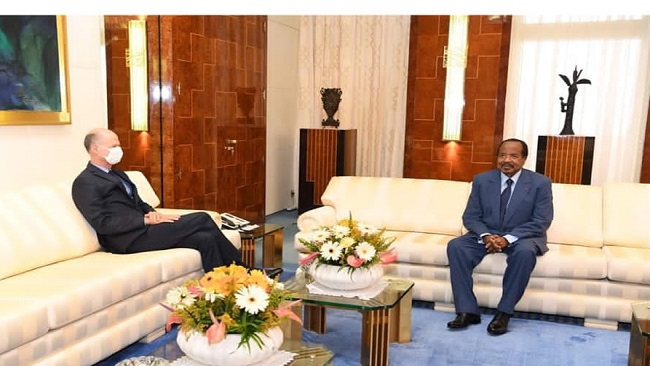
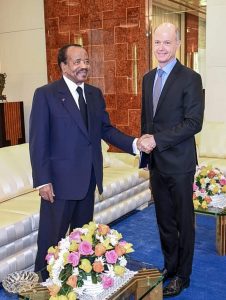

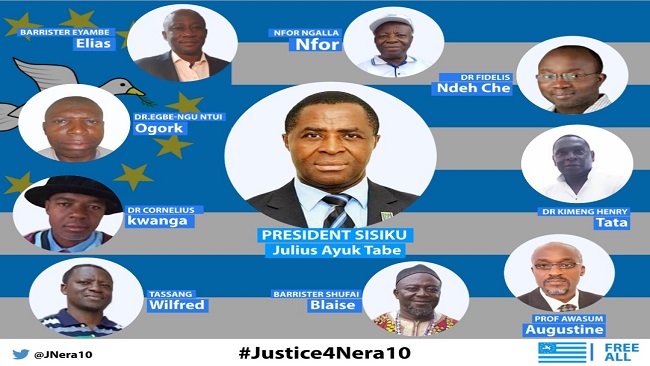
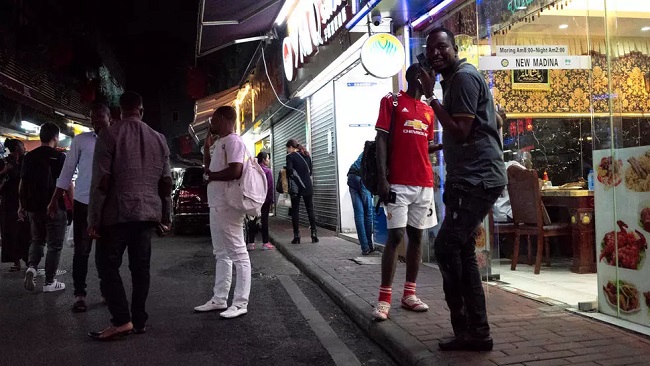
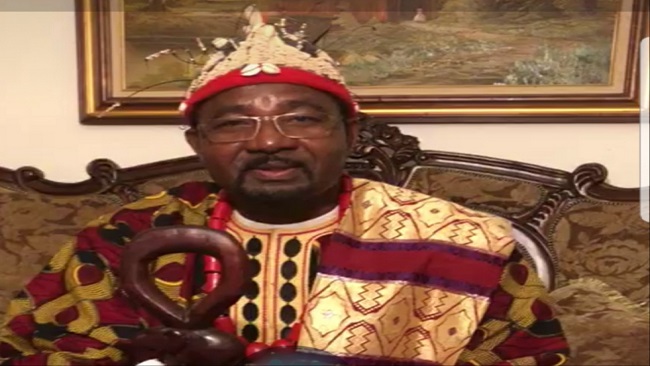
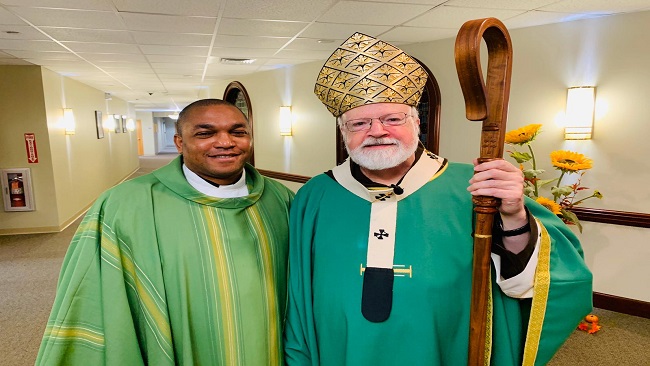
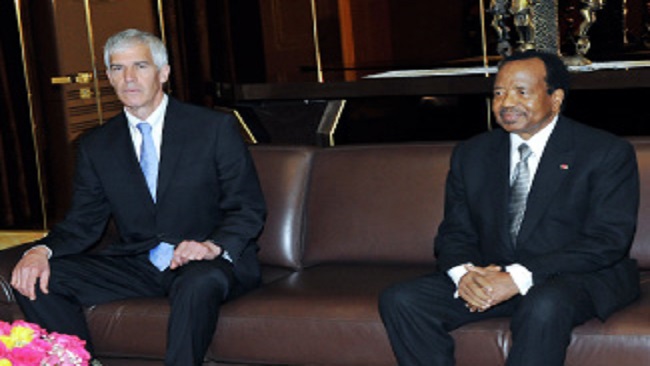

















23, April 2020
Manyu County Town Hall Meeting: A time for real change 0
A Manyu Town Hall Meeting has been called for Sunday the 26th of April 2020 at 7pm Amba Time. As Manyu people congregate to take the future of the Ambazonian revolution in their county into their own hands, Cameroon Concord News Group shares their enthusiasm and wisdom. It was this media outlet on the 8th of April 2020 that incessantly flashed out signals about the clumsy and impractical governing experiment in the county. We are delighted that the people of this strategic county are responding to the challenges ahead. The people of Manyu are about to begin a new chapter in Southern Cameroons history instead of waiting to be concealed by regret in the years ahead.
Cameroon Concord News has been provided insight information that the four LGAs in the Manyu County have been inefficient at fundraising and collaboration and consequently making the CPDM criminals in Yaoundé to look professional and well-organized. This media outlet can confirm that many LGAs in the northern zone of Ambazonia spent more on defence materials than the County of Manyu over the last nine months. But Manyu has Senators and Congressmen. The bureaucracy within the county has evolved to nothingness as titles of Chairman, Senators and Congressmen have been the preoccupation of county officials. Somehow, these people have forgotten that their country is at war!
Manyus have a long and occasionally dishonourable history with titles and ego but even the most zealous advocates of such cultural insanity would never have contemplated such foolishness in the middle of an existential war. Fortunately, the court of public opinion and some elders in the county have decided to act. From Ground 1 and Ground 0, there is a current impatience with social media lawyers, pseudo political scientists, social media grammar consultants who spend hours showcasing their pitiful personalities on whats app platforms than raise funds for the struggle. The excitement from G1 and G0 towards the new setup is understandable and the need for Manyu people to join is encouraged.
We of the Concord Group have learned that some in Manyu intended to make their county governing structure a gladiatorial political game with titles and social media congresses and senates while their villages are being burned and villagers are sleeping in the forests. Conditions of genocide in Ambaland convey no emotions to these US based comedians. With the impending structural change, fundraising and self-defence is the foundation and plaudits should go to this triumph of logic over social media emotions. The Manyu county coordinator remarked last night ‘this is intended to separate the real Manyu Men and Women from the rogues and noisemakers’.
We hope that profound lessons have been learned and that these changes will encourage a more aggressive fundraising and self-defence dynamics in Manyu. It is tasteless to insist on titles, bureaucracy and politics when the number of avoidable deaths in the county is rising. Cameroon Concord News believes that the moment of reckoning has come for Manyu and all people of goodwill in the county should celebrate by opening their minds and wallets. Any blackmailers and campaigners against this genuine progress will face the colossal force of the Ambazonian people. And that is a contests they can’t win.
Despite the lack of progress and a stagnation of self-defence operations in the county, our understanding is that a rogue element within the current administrative structure is determined to oppose this impending positive change and progress. Let it be known that Ambazonia is at war and any citizen who stands in the face of constructive and dynamic change in Manyu will be considered an enemy of the state of Ambazonia and will be treated as such!! Ambazonian self-defence forces are facing danger and a ferocious enemy daily. We owe them a duty to make available the best materials possible in their quest to protect our land.
The stirring up of sentiments intended to bring hostility between Mamfe Central LGA and Eyumojock LGA by bigots from Eyumojock local government area is a CPDM style madness that shouldn’t and wouldn’t be tolerated. Cameroon Concord News and Cameroon Intelligence Report intend to name and shame anyone who engages in division and blackmail at this crucial point of this revolution. We would not tolerate anyone or anything that aids and abets the enemy. Any conspirator will be crushed with ferocity and rapidity. Ambazonia is at war!
This media outlet believes that the new structure in Manyu will showcase the potential for a more planned, practical and fruitful way of fundraising as well as defending Ambazonia. Manyus need to recognise and embrace this great opportunity to get their revolution back on track. The time for Manyu to rise again is here. Sunday the 26th of April 2020 at 7pm, the journey starts for this strategic county. A stitch in time saves nine
By Isong Asu
London Bureau Chief
Cameroon Concord News Group